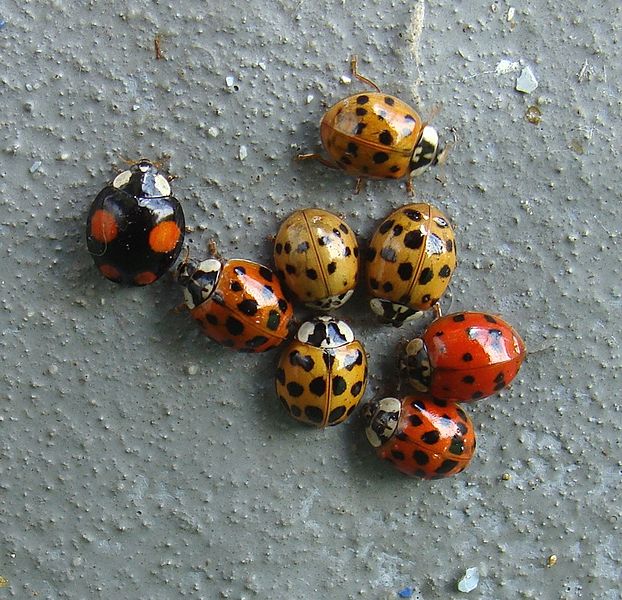A new study published today in Science reports that H. axyridis may be such an effective invasive species due to microsporidia in its hemolymph. These microsporidia are safe for their hosts, but when native species (to Europe), such as Coccinella septempunctata, were injected with these microsporidia they died. In the field, this may mean that consumption of H. axyridis eggs is lethal to intraguild competitors.
C. septempunctata is also established in the U.S., and is a dominant competitor of our own native species. It will be interesting to see how these new findings will influence our understanding of American native lady beetle declines.
 |
| Harmonia axyridis (wikipedia) |
Science Daily article: http://www.sciencedaily.com/releases/2013/05/130516142541.htm
Are you signed up for the Gardiner Lab Buckeye Lady Beetle Blitz training workshop?






